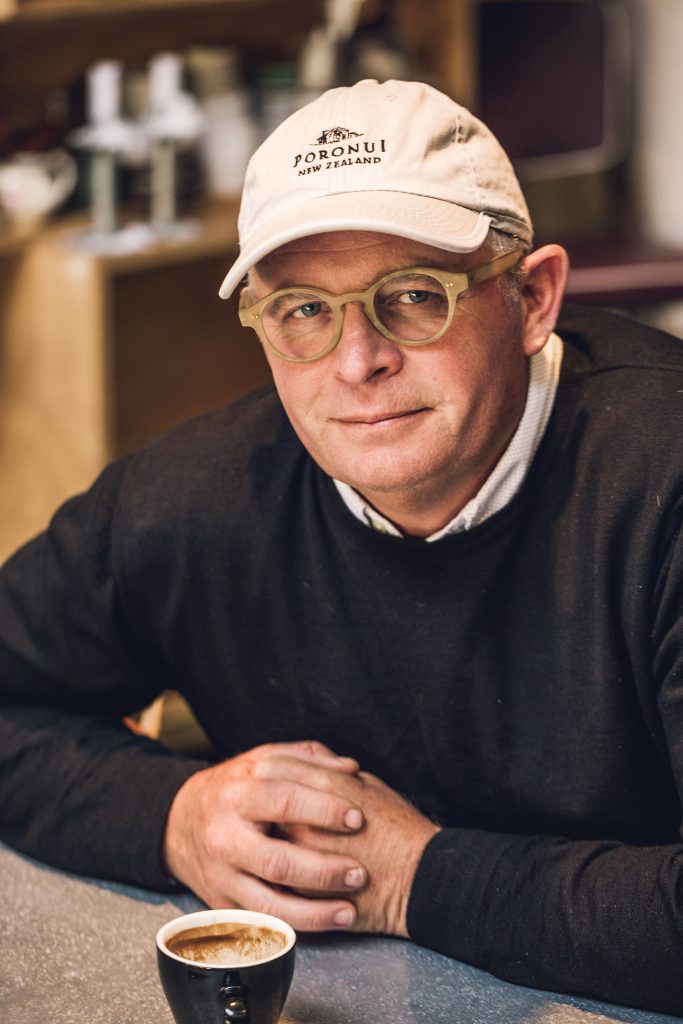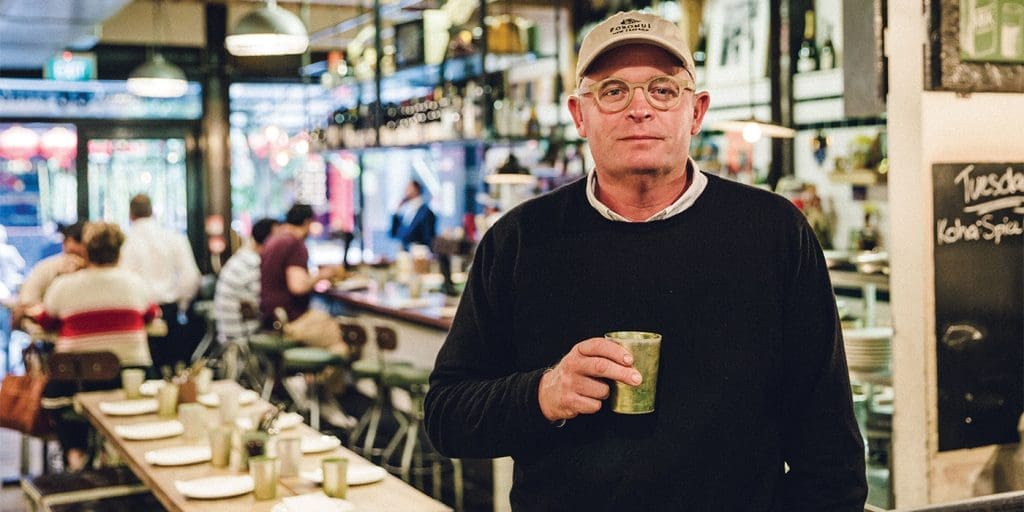Al Brown’s Casual Guide To Success
While Al Brown has run a silver service restaurant before, he sees New Zealand’s unique “Ace Card” in our informal, no-fuss style. Just good food, good company and style that celebrates true New Zealand. It’s a philosophy that Al and his team put into books, events, Restaurants, Depot and Federal Deli and the Best Ugly Bagels chain. It appears to be a carefully curated style which celebrates authenticity and unpretentiousness. This carries through from the graphic design through to the interior design and of course the food. But this is more than an aesthetic, this seems to be Al Brown’s business strategy and now his philosophy for work/life balance.
What’s a typical a day for you?
I get up at 6.30 am and start every morning with a 6 km walk. No headphones in, it’s exercise, but it’s also thinking time, trying to get my day all sort of sorted in my head, or work out how I am going to reply to that, or say to this, or whatever. And so then, I am in work by about 9 and then it’s just emails, meetings with staff, today was a meeting with Rachel the Manager at lunchtime today, just to answer an email from someone wants me to present a live cross for World Fishing Day that’s coming up on the Tongariro, so that sort of stuff.
I’m down in Huka Lodge next week cooking for a whole lot of big dogs, all the head CEO’s of the country or whatever, taking the Oyster Bar down there and shucking oysters, doing that. The following week I am doing something with Marlborough King Salmon.
One of the things I have found hard is that when we grew was that it felt like I was a racehorse that had to run every week, you know, to even get a third or a first or second, that sort of thing to keep feeding the staff. So to get back to the answer, each week is quite different, we did the thing “Burning Lamb” this year, that was one of the hardest, if not the hardest thing I’ve ever done. That was a thousand people, one shot, and no dress rehearsal.
Was it a success?
Yeah it was unbelievable. Doing it again.
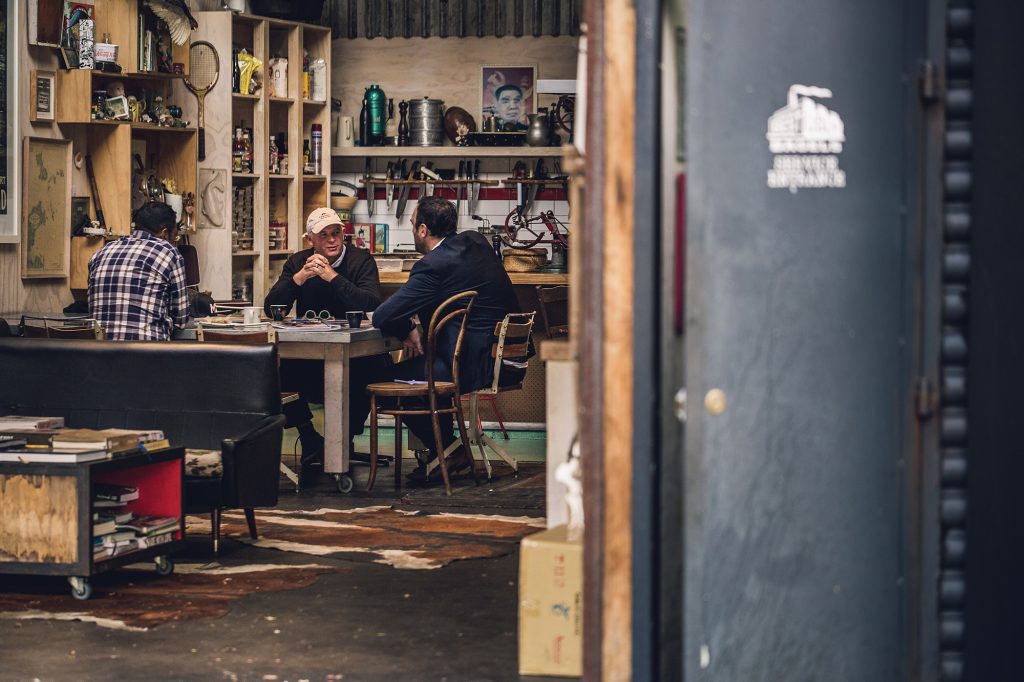
Hospitality seems to be hot at the moment but there are so many who fail. What do they get wrong?
Well what happens, is that people go “Oh look, Suzy is such a good cook, you should open a café”, “This is delicious, you are so good at hospitality and we always have fun when we come to your place, you should open a restaurant”. I think it’s like anything, you can’t step into a business and suddenly make it successful if you haven’t been in the business.
I started washing dishes, then I moved up to salad hand –I learnt the business and that’s I think, and maybe it’s the same in a lot of other businesses, but they say don’t worry about the dollars, look after the cents, and so many people don’t have time, they make beautiful food, but they don’t cost it out. So even if there’s a line up for the coconut rough slice that they are making and they are just selling tonnes and tonnes of it, if they haven’t done their costing, the more they sell, the more they lose. And I think so, you have to be disciplined, you have to do your food costs, you have to know where your wage costs are, all the boring stuff that is actually like the “yawn” stuff around hospitality. Unless, which no one wants to do, but unless you do have the discipline to do that, you have no concept of if you are making any money and all those, what is it 80% in 3 years go under?
But in saying that if you are good at what you do and you surround yourself with good people and you have a great product, you can get there and it can be really enjoyable and exciting to do it as well.
What drives you?
I think what drives me is a little bit of risk, I love that idea, it feels like it gives you an edge. When there’s something on the line, you know it makes you get out of bed, makes you try hard. I could roll out a million sort of lines that everyone sort of uses, but the idea of risk or failure is just not in the scheme of things.
Did you have a concept that you would be doing this when you were growing up?
I loved hospitality, I grew up on a farm in the Wairarapa and I had no sort of connection with it whatsoever. I loved the outdoors and I loved walking the hills and going eeling and duck shooting and walking around, shooting a rabbit and bringing that home and cooking it, getting Mum to cook that up and that sort of thing. But I left school and I was the only son for a farmer, for a farm that had been in the family for three generations and I was pretty much expected to take that over – actually we were all adopted, all three of us. So, I think my family was adopting children till they got a boy to take over.
So I had left school and became a shepherd but my parents split up and that was kind of an epiphany for me in a sense that I thought “Oh, actually I can do what I want to do, and I don’t want to do this”. So I sold my sheep dogs and moved to Wellington and started making wontons in a place called the Magic Wok, which was the first food court under the BNZ Centre in Wellington. I had always liked cooking right from an early age as a kid and found it creative, but found it just a really giving thing in a sense. Well, especially as a kid baking and baking is one of the things that we should be very proud of as New Zealanders because we are great bakers. We grew up, we are a young country, you know first world, and we didn’t waste anything, we preserved and we baked. But you never just baked for yourself, you bake for others and so I always loved that putting something on a plate, not just something that you have made, but it’s something that people are enjoying. Also, growing up on a farm, my sweet tooth was a DIY situation, it had to be because there was no dairy down the road.
When I was older and I travelled and I started working in restaurants and just found them, the kitchens, to be very creative, really exciting. There’s fire everywhere, there’s yelling and then out of it comes beautiful plates of food. So I kind of like the chaos ,as well as the calm on the other side of the chaos when plates of food go out.
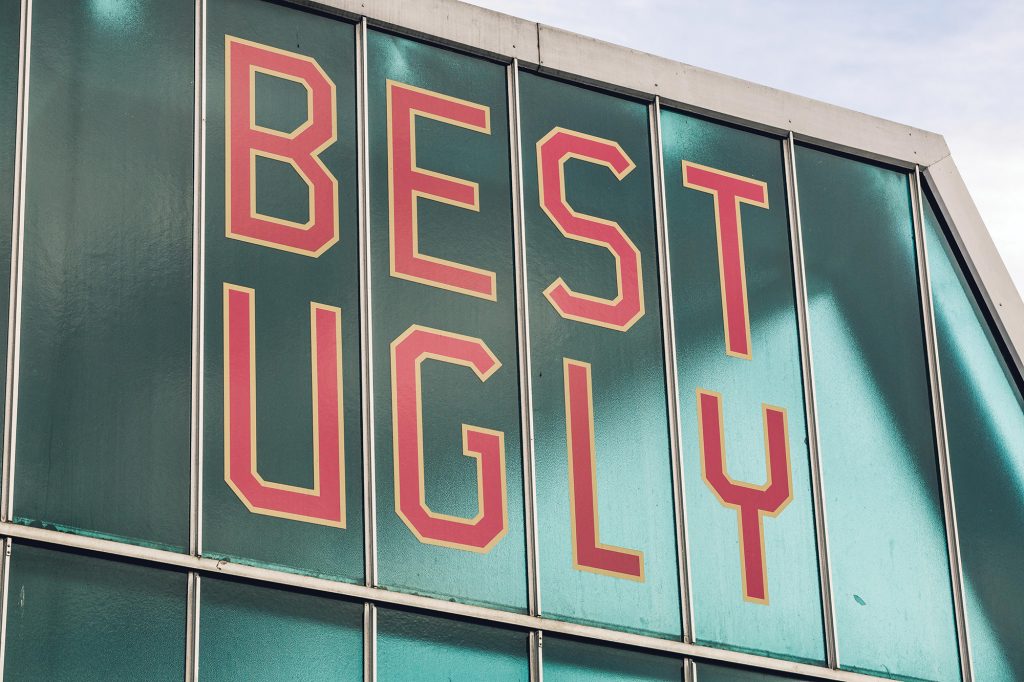
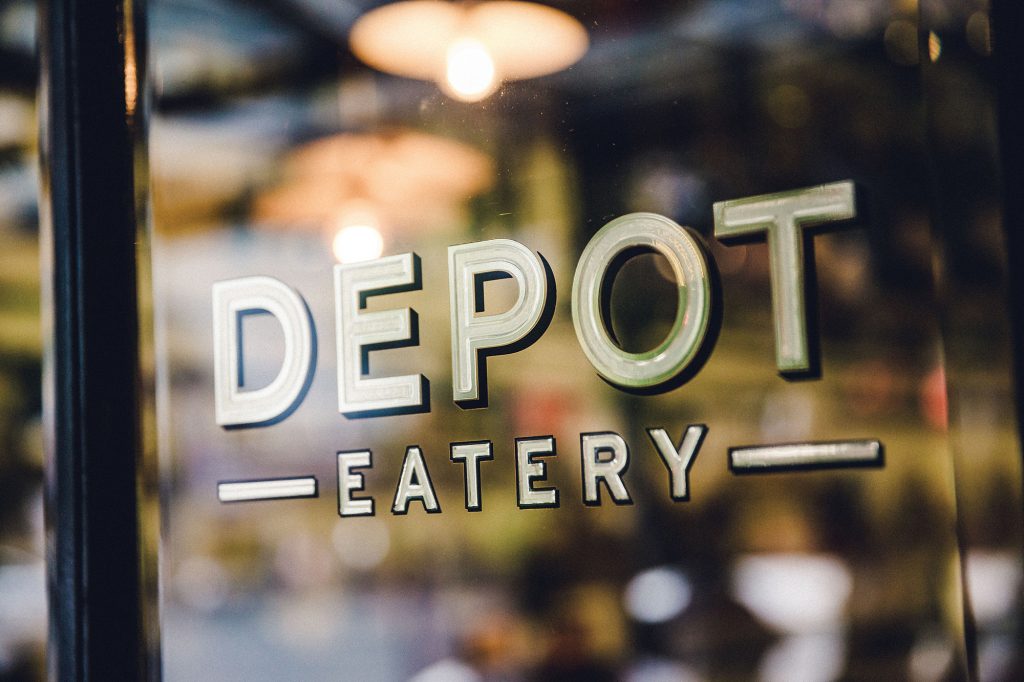
Speaking of very calming, Logan Brown, the restaurant you started with Steve Logan in Wellington was epitome of white table clothed, fine dining but you seem to have gone a different route since then…
Well that’s a really good point and its true. As Kiwis we travel, we do the OE and I think there’s been a real sea change in the New Zealand attitude. I think that we always looked afar and we always coveted everyone else and I thought because I was training to be a chef, I had to do fine dining if I wanted to prove myself. But because that was the pinnacle I guess of cooking when I was growing up, you know the white table cloth, beautiful glasses, all that, silver service and things and so that’s what I thought I had to do and we did a great job. It was in a beautiful old banking chamber and it was fantastic, but after a while I realised that the jacket didn’t quite fit. It didn’t feel that it was me.
But yes, we were doing this beautiful food and in this beautiful environment and doing a great job, but somehow it just didn’t ring true. I found there was something there, I couldn’t put my finger on it, but I wasn’t that comfortable with that style and I think it was from stepping away from that and getting out of Logan Brown. Steve and I had a great partnership and achieved lots of really good things together. But stepping away and giving myself space I suddenly realised that, I think the penny dropped in a sense, and this is how Depot got to be.
I kept thinking “well, when we are at our best – when we are eating and our most relaxed” and it kept coming back to me. It was my childhood growing up in a camp ground for the summer holidays at Castle Point, so camp ground or bach where it feels like. There’s just complete anonymity. It doesn’t matter whether you are a High Court judge, or you are freezing worker, or you are black, white, gay, straight, rich or poor. All that washes away and it’s about informality and that’s when the penny really dropped for me.
That actual informality is wonderful and we should be hanging our hat on informality because we actually feel comfortable in that situation. We don’t feel particularly comfortable as Kiwis in a white table setting. Your fork drops off, or you can’t pronounce the varietal of wine the French have got.
Whereas in a bach again, you will drink wine out of a jam jar if that’s all that’s left and there’s a real leveller in that. So it even sounds blasphemy that that was the idea behind Depot and people thought that I was going to serve wine in tumblers and not in wine glasses and thought I was crazy. People rang me in the middle of the night and say “you’re going to go bust” and I would say “well mate, I flew from Auckland to Wellington this evening at 7 o’clock at night and everyone was drinking them out of plastic cups at 3,000 feet”.
You know at the end of the day, I think that we are relatively simple folk. Yep, there’s lots of people who adore wine and love a beautiful glass and get right into it. But 90% just want to take the cork off, or unscrew the cap and the fun will come.
We just want to feel comfortable in an informal situation and hospitality for me is about making people feel comfortable as soon as possible. I am just fascinated by the threshold of walking into a space and making people feel comfortable and I think that’s what we have achieved at Depot and at the Fed Deli in a sense that when people step into that there’s a sense of “I can do this”, or “I get this”.
That’s an interesting point, because so much of that is about the experience and as you say the space and the feeling that people get when they are walking into a place. How much work do you put into curating that?
I am a cook at the end of the day. I think I am relatively creative in a sense. But the one thing that I have learned, and again it’s so clichéd, but surround yourself with a bunch of good people and a whole lot of good shit happens.
So I’ve been a massive believer in that and I have a really close friend of mine called Gary Stewart from Gas Project which is a small design company. He does all my collateral, he does everything, all the branding around the books, the restaurants, you know the t-shirts, the Best Ugly’s all that sort of thing, but it’s a process where we work together.
He interprets the vision really well and I love that process of sitting down and having a bottle of wine, or two bottles of wine, and talking about it and getting it going. And then we’ve got Charlie Nott who is our architect, again he’s a mate, and a fly fisherman. There’s a whole lot of links, we all sort of have very similar values, very similar sense of humour and a sense of style.
I hate Kiwiana. Kiwiana is too sort of “buzzy bee” thing, whereas I think that there’s a really lovely aesthetic to the Kiwi way. Whether it’s a bach, or it’s how we live, or how we camp, or how we do things. And that’s what we tried to create in the restaurants and the books and all those things. I always feel slightly fraudulent because I am always the one, the face.
So when people go “that Al Brown, everything he does turns to gold”, it’s like f**k off, you know there’s a whole bunch of people working really hard at something.
SURROUND YOURSELF WITH A BUNCH OF GOOD PEOPLE AND A WHOLE LOT OF GOOD SHIT HAPPENS
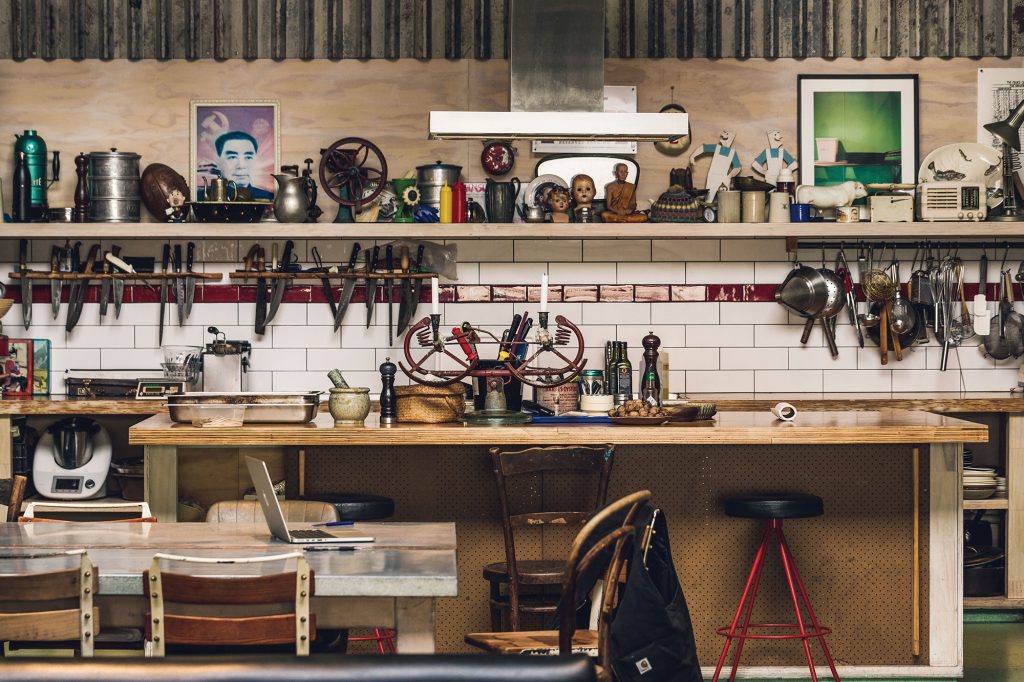
Was that a hard thing, did you have to evolve into it though that sense of trusting people to do this thing?
Yeah, I think you do have to trust people and I think it’s always something that’s quite hard. I think there’s a bit, I guess a micro-manager bit, I’m a bit of a detail freak in a sense.
If we plated up a chicken dish right now and there was one piece of parsley, you would put it somewhere and I would put it somewhere and if I saw yours I would be wanting to move it, which is ridiculous because no one gives a f**k where the parsley is. But then again, those sorts of details matter when you are detailed-oriented.
There’s a common thread with all those people in a sense that they are good at what they do and they dig detail and then from there you can build or do anything, but the one common ingredient, and again it’s pretty cliché, is people and how you look after them.
But we don’t do arrogance and we don’t do cry-babies. We don’t like arrogance in any sense of the word, we like kindness and I guess efficiency and sort of honesty in a service in all our establishments.
How do you keep that culture alive?
I think the main thing is that we look after people how you would like to be looked after, we don’t pay them any more than anyone else, but we care about them as people and we listen.
Yep, there’s a hierarchy in a restaurant situation, but the most important person is the dishwasher, without a dishwasher we’ve got nothing. So if a waiter screws up in the restaurant, “oh, they wanted the pork not the chicken, sorry”, the chicken gets offered to the dishwasher first up, no one else. That’s the hardest job. Steaming hot, thankless pots, hot water, wet.
So we try and have a culture where everyone realises that everyone is just as important.
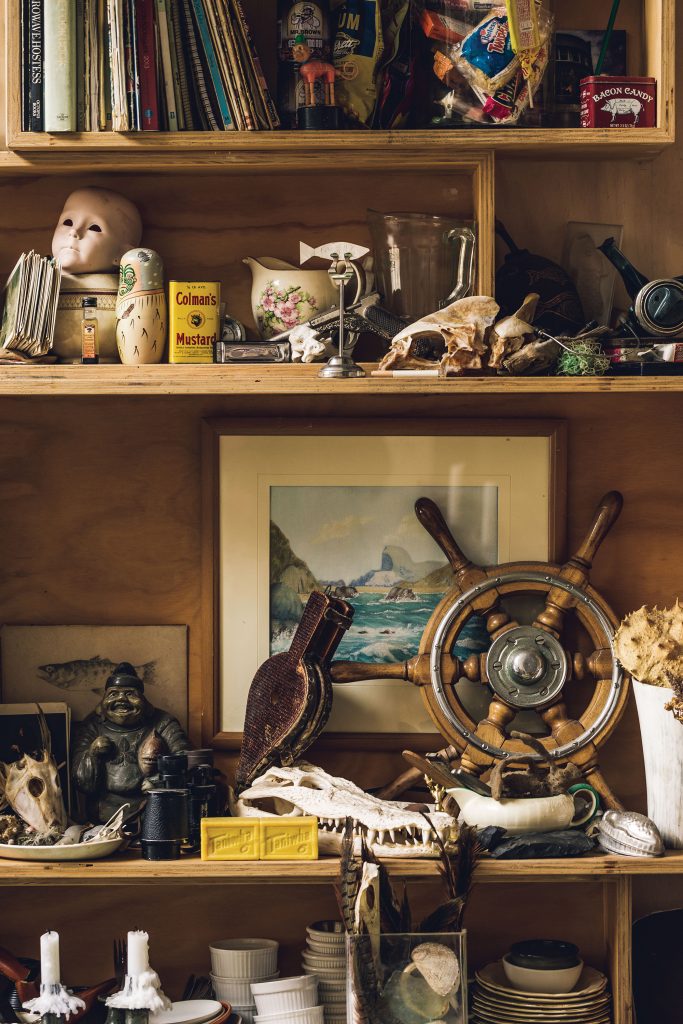
You had a really nice phrase before, which was where we are at our best when we are eating, and where do you feel where you are at your best in terms of business and you know with everything that you’ve got going on in front of the camera, out fishing, new brands, is there a place where you really feel like you are in the zone?
I don’t, I might make it look easy, but it’s quite hard work.
I am dyslexic so writing takes a long time, but I get there and I work it out. I am still nervous as hell presenting in front of a camera and that sort of thing, but I do.
It gets back to a little bit like the risk or the adversity gets me out, like I won’t, I try not to let that. That’s what stimulates me is that I can do, even though I am s**tting myself I know I can do this, or I will get there in the end.
I am at my best when I am serving food and wine and people are having a good time. I’m a pretty good cook, I am a pretty good chef I think. I can cook really nice food, but I don’t use tweezers and I don’t do dots on the plate or cook things in plastic bags for 6 – 3 minutes, I am a bit more hack. I cook on fire.
Our bagels, there’s no temperature control on that oven, you have to do it by knowledge and understanding and learning the oven.
Up the road again, we cook in a wood fired oven or we cook over charcoal, so there’s a certain amount of risk again in that, but that’s the high. I think that’s the stimulating part of it. And I know the food is amazing up there and I know the value proposition of eating in any of our places is as good as the real top-notch places as well.
I guess, the food is the vehicle of bringing us together. It’s got to taste good, but it’s really about who you are with and who you are is what gives you the memory of a great or a fine eating experience.
I’ve said that for a long, long time. Two things – where you are and who you are with. You can serve someone exactly the same dish and if you’ve just had an argument with your partner, or your wife, or whatever, you are sitting there and not saying a word, you know there’s nothing happening in that food.
But if your best mates have just got back from UK two years ago and you hadn’t seen them, you’re bloody opening wine and it’s the same dish, you will be going oh my God these muscles are bloody delicious.
And I think where we are now as a country is that we have realised that the rest of the world really like what we do and how we do it and that’s why informality is kind of our ace card.
It’s not easier either, that’s the thing. There’s a risk in informality unless you nail it, you are seen as lazy, so it’s that analogy of the duck going across the pond with its feet going, everything looks like it’s just happening they are all having a great time but there’s tonnes of stuff going on behind to make that look as simple and relaxed as that.
Do you feel like you are influencing change in that way, not only in terms of customer expectation, but do you feel like there’s going to be a generation of chef’s coming through?
I definitely think that I may be part of a movement of other chefs as well that have recognised that, you know, because look at me, I thought I needed a white jacket and a tall hat, I thought that was the only way I could be a chef, but as it turns out, when the jacket didn’t fit, or I didn’t feel as comfortable as I thought I should feel and thought about it and turned it upside down, now I am really happy you know.
And it’s about generosity, you know it’s a smoked Kahawai, it’s a fish pie, it’s a trifle, it’s a pavlova, you know these are not dots on the plate.
For me personally it gives me much more of a buzz to see people eat that way, instead of “oh my God, I need to take a photo of this work of art and I don’t know where to start”, I want people to go “f**k, smell this”.
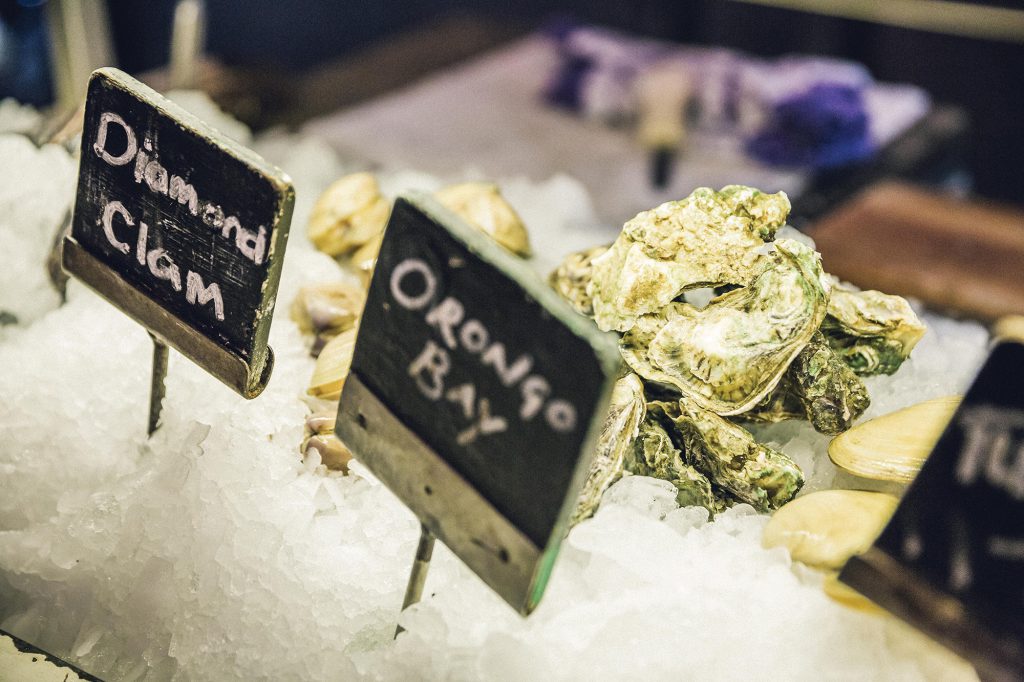
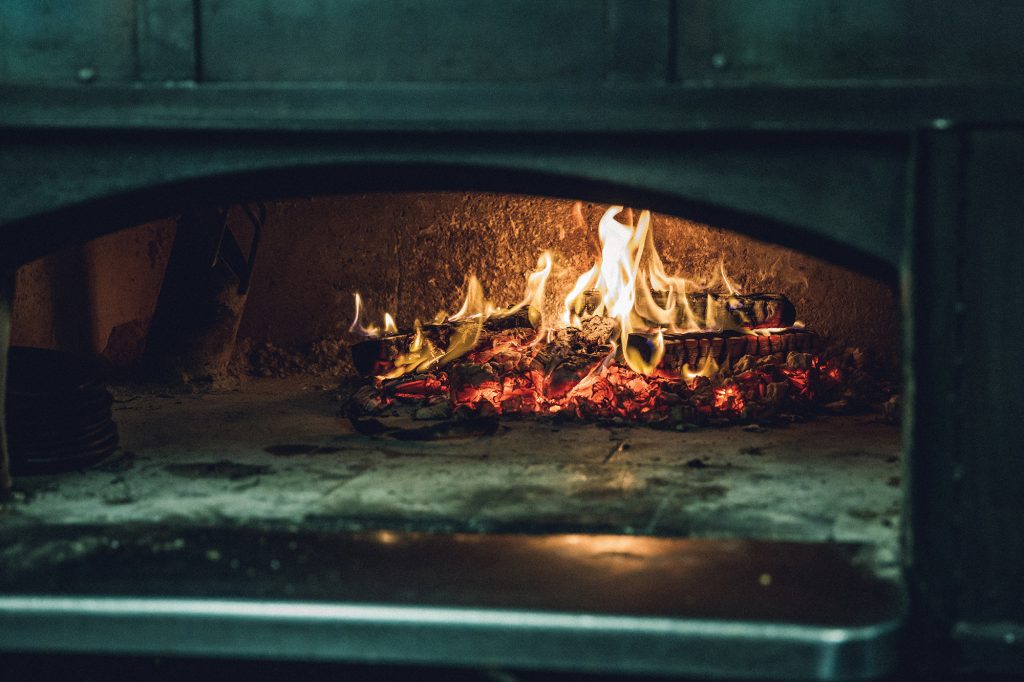
You mentioned New Zealand within the context of the wider world and you have been working with Trade & Enterprise for a number of years. There is increasingly more and more focus on food and resources. What sort of change do you see in the way that we process produce?
Well I think that we should be looked upon as a country with the smallest Farmers Market in the World.
Forget commodity, we should be high end everything, we should be demanding the best price, putting a lot more into making really finished products to export, rather than milk powder and logs.
We are a clever bunch and all won lotto didn’t we, to live in this country. I mean, essentially, we’ve got no money in our accounts, but we are richer than most people in the world. But we’ve got to tidy up our rivers, you know rivers are the veins of the country. For me you know there’s a real goldmine mentality in this country, whether its Sauvignon Blanc, or it’s the muscle industry, or its dairy, or its, you know, even honey now, we are diving into it, everyone is getting into it but there’s a great saying that I learnt working in China, “short term greedy” or “long term greedy”.
I like long term greedy, where you step back and work it out, we don’t just jump in and out it goes, tonnes and tonnes and tonnes of it.
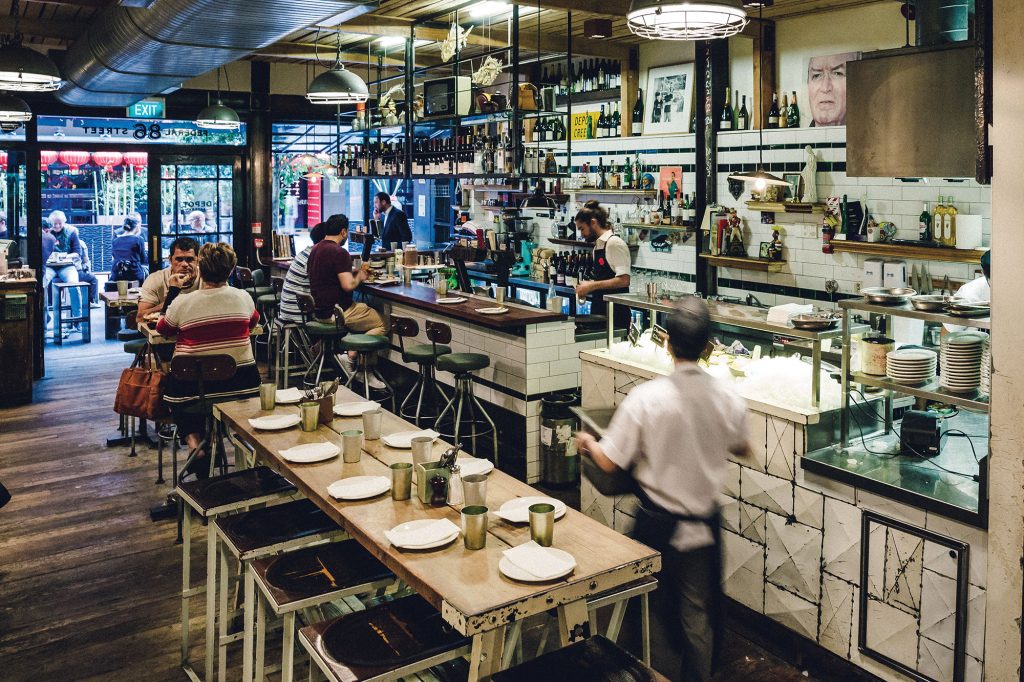
Since you started with Trade & Enterprise in 2003, do you think we’ve grown up in terms of short term greed?
When I go and cook for NZTE overseas you bring out New Zealand lamb and you bring out New Zealand King Salmon and all these wonderful products that we are known for butter etc., everyone expects that, but now when we are going, we are also bringing, these new products that are riding shotgun with the classic products.
Did you know we grow pine nuts in New Zealand, did you know we grow Wasabi in New Zealand, did you know we grow truffles in New Zealand, do you know we grow Saffron in New Zealand? It’s like a sea change that’s happening.
It’s almost embarrassing what this country can produce now compared to when I grew up on a farm in the Wairarapa and our vegetables were cabbage, carrots, peas. You know we hadn’t heard of rocket, or argula or mustard greens, or you know we had two herbs, we had parsley and we had mint.
So you got all these spinning plates, including NZTE and charity, is there a discipline involved in work/life balance?
Oh yeah, I am really trying to do that now, this year more than anything. We moved up to Auckland 6 years ago, 6½ years ago and I think you know we have achieved lots of things and I think that’s what Auckland is about is that you have lots of opportunities and I realised very quickly after we did Depot that when you are up here there’s lots of good things happen, but I didn’t know how big I wanted the brand to be until I got to I guess this point, I don’t want anymore.
I never say never, but I am not wanting to be a Pack Group. I’ve two wonderful restaurants, I’ve got these bagels shops that are pretty easy, we’re opening more of those, but we are just making one product so it’s quite easy to replicate that and to roll that out, you know. We are not making sponges, and eclairs and macaroons and loaves of bread and cupcakes, we are just making bagels and coffee and with the music up and staff yelling in a fun environment that they can work hard in.
So it’s only really getting to 5 or 6 years up here where I am, yeah I am kind of really happy with my lot and don’t want much more.
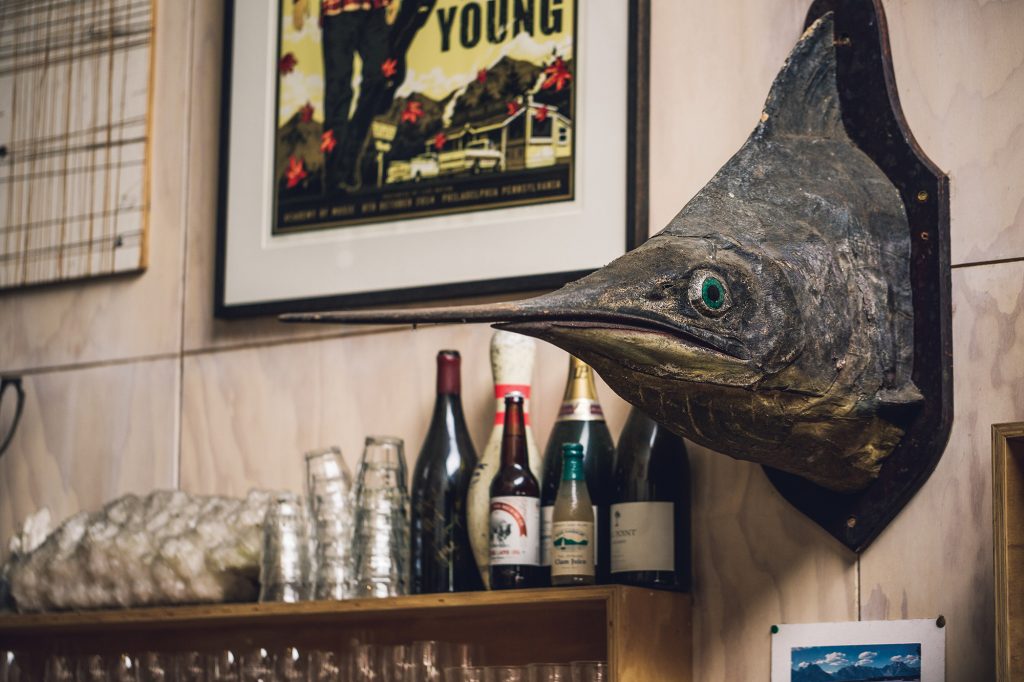
If you look backwards now and as you say you are at a place where you want to be, but have you got any regrets along the way in terms of missed opportunities, or things you wish you hadn’t done?
We did, I don’t know how much digging you have done, but Steve and I, I had this crazy idea of years ago of doing something called the Grill Slinger.
It was a BBQ tool belt. When we were building Logan Brown, it was a Friday night and the tools were down except a sparky up a ladder and he had his belt on, and he kept putting something in and pulling something out, I am like, there’s got to be some culinary way we could do that, like everything’s on you, that makes tons of sense, so I started.
I went to Bunnings and bought a leather tool belt with no tools in and I stuck an oil bottle in there and I stuck my tongs in here and I am like this works because most BBQ’s you buy only have a tiny little bench on either side, so where do you put everything?
If you have got everything on here you got room for your platters and your meat and everything. Oh I started thinking about what colour my helicopter would be. I was going to revolutionise the world and this was going to be it.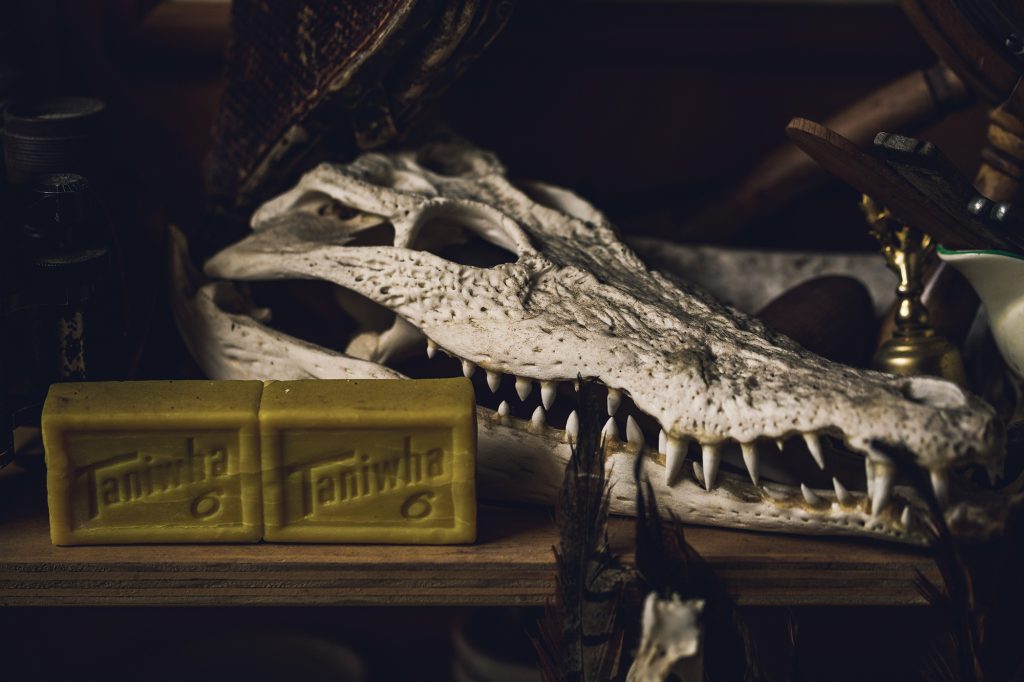
We did the Grill Slinger branding and we went to launch it at this massive thing in the States. We had people coming up going “Oh my God this is amazing” this is going to be bigger than Ben Hur and then some guy came up to us and whispered in our ear, he said you know you better watch it, someone’s going to copy and come in under you do.
So what did we do? We copied ourselves, we did the Grill Slinger Sport, we did a smaller one, you know and a cheaper one thinking ‘right, we’ve got the top one and we’ve got the bottom’ and we sold over 40,000 around the world and didn’t make a penny.
So we were constantly going to these huge BBQ’s fairs and shows around the World trying to get this thing going, but what we realised was and it’s been a great lesson and this is trying to answer your question.
I don’t regret it, didn’t make any money, in fact we lost lots of money on that, but we did something that was incredible that not many people get to do.
But what you do realise is that anyone can design the cup or the product and it goes in a box, but you when you leave it on the other side of the world, it’s just on another shelf sitting there with no love.
IT’S ALMOST EMBARRASSING WHAT THIS COUNTRY CAN PRODUCE NOW COMPARED TO WHEN I GREW UP ON A FARM IN THE WAIRARAPA AND OUR VEGETABLES WERE CABBAGE, CARROTS, PEAS.
